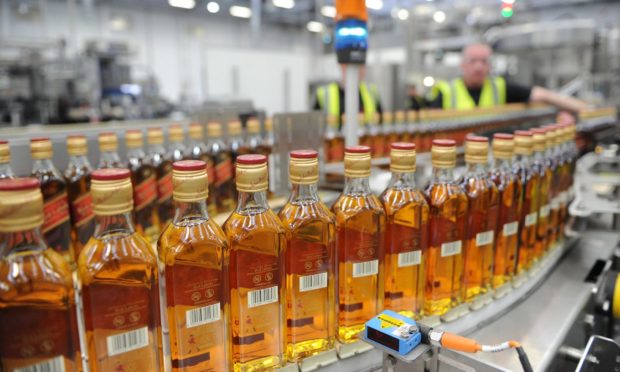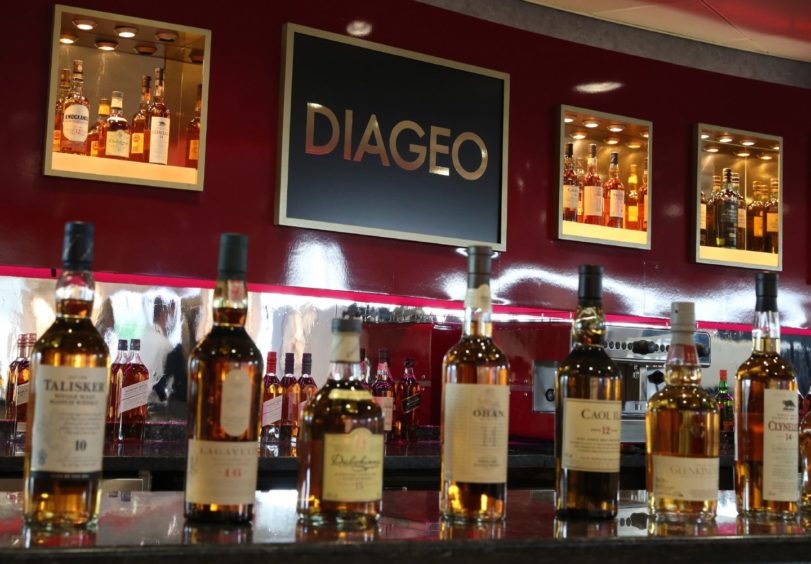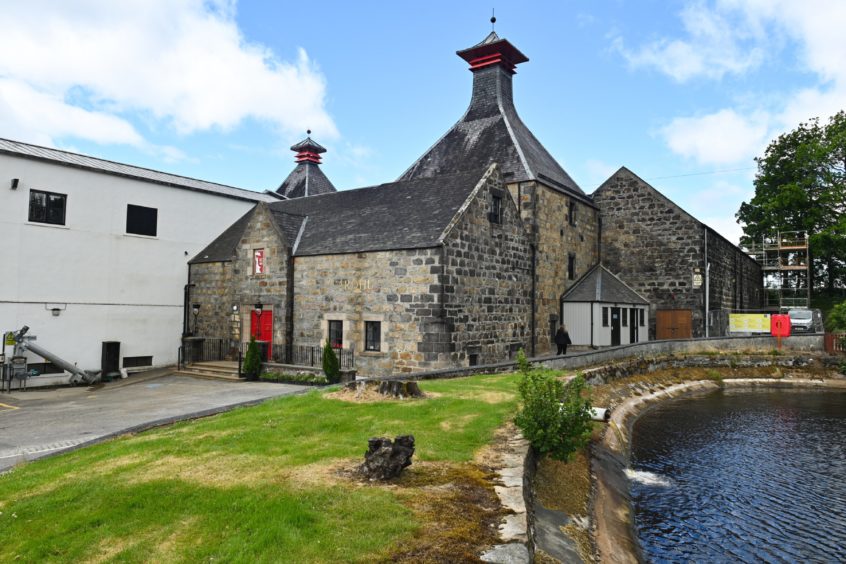Whisky workers at Diageo’s distilleries and bottling plants in Scotland have voted to accept a three-year pay deal.
The agreement includes a 3% salary increase covering the last financial year, then an average of inflation rise for the next two, capped at 3.5%.
It was accepted following ballots of GMB Scotland and Unite Scotland union members at the company, which runs 17 distilleries in and around Speyside and others in the Highlands and on the islands of Skye and Islay.
GMB Scotland organiser, Keir Greenaway, said: “This deal delivers some stability for our members, both now and for the years ahead.
“Against the threat of Covid and a damaging tariffs war on the whisky and spirits sector, it’s been a hugely challenging 18 months and ongoing trade reform as a result of Brexit means we must still be on our toes in the weeks and months to come.”
Unite Scotland industrial officer, Bob MacGregor, added: “The deal is a three-year commitment which ensures our members’ pay does not fall below the cost of living.
“It’s an excellent result for our members who have continued to work tirelessly throughout the pandemic boosting Diageo’s profits.
This agreement sets a benchmark for the drinks industry in Scotland which is recovering following the onset of the pandemic and the recent suspension of US tariffs. We hope other companies in the sector will sit up and take notice and treat their workers fairly.”
Between them, the two unions’ membership accounts for nearly half of Diageo’s Scottish workforce of 3,000.
The London-headquartered international drinks giant is the world’s biggest Scotch whisky producer.
With 28 distilleries and two bottling plants in Scotland, its whiskies include world bestseller Johnnie Walker, Bells, and J&B, as well as single malts such as Talisker, Cardhu, and The Singleton.
A spokesman for the firm said: “We are pleased that our trade unions have confirmed that their members at our sites in Scotland have voted to accept our pay offer.
The strong pay settlement, negotiated through constructive discussions with both unions, ensures our employees receive an increase on their pay for the next three years, alongside maintaining the competitiveness of our operations.”
In January, Diageo released interim results for the previous six months revealing that its world-wide whisky sales had dropped by 8% as a result of the Covid crisis.
Pre-tax profits at the group, which also produces Guinness, Smirnoff vodka and Baileys liqueur, were down by 8.3% compared to the previous year, at £2.2bn.
The tax was imposed in 2018 as part of a long-running row between America and the EU over subsidies to aircraft manufacturing giants Boeing and Airbus.
Last month, Diageo officially reopened its renowned Brora Distillery, in Sutherland, which had been closed since 1983.


